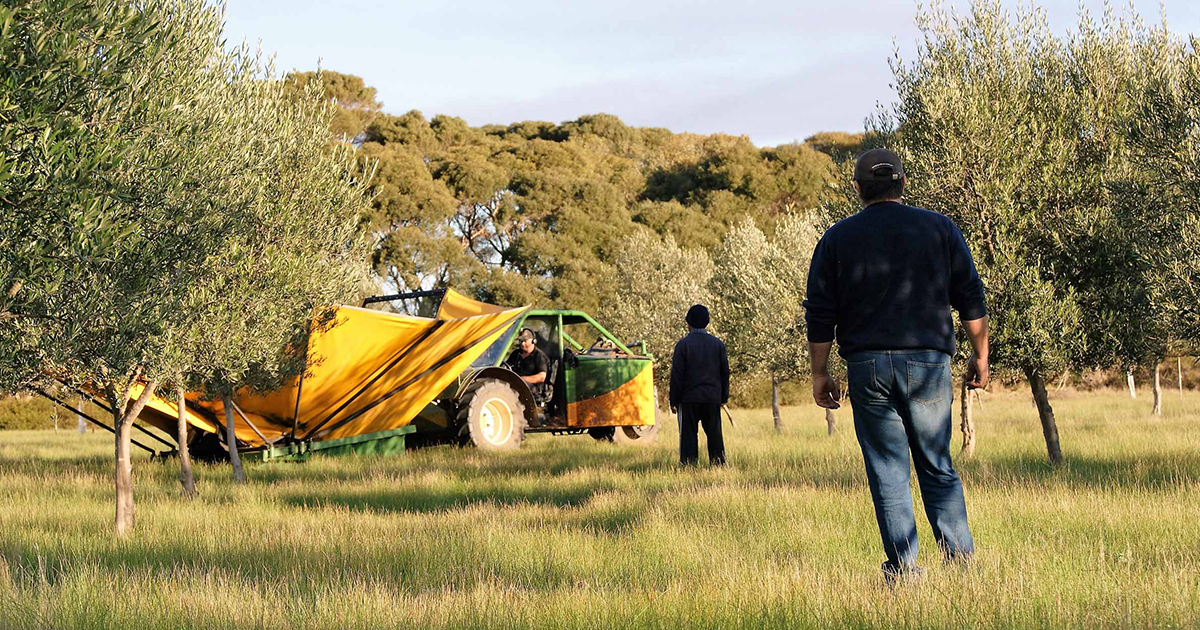Our researchers are using a novel engineering method to grow Australia's olive industry
Local farmers and UniSA mechanical engineers are creating sustainable, fruitier tasting table olives — perfect for your grazing boards and dirty martinis.
The global consumption of table olives is set to reach three million tonnes in 2025[1], presenting an opportunity for Australian growers to capitalise on increasing market demand.
However, table olive production in Australia faces significant scaling challenges, as evidenced by the limited number of producers.
In 2023, Australia produced about 2,500 tonnes of table olives[2], equating to just 0.07% of the world’s total table olive production for that crop year.
The main obstacle to scaling is the reliance on traditional production methods, such as lye treatment and/or fermentation during the olive debittering process.
“We’re not just thinking about how to make table olives; we’re asking how we can do it on a large scale, and in a way that benefits both producers and the environment.”
UniSA Industry Professor of Mechanical Engineering, John Fielke
These methods are time-consuming and labour-intensive, making it difficult for Australian producers to expand their operations while maintaining cost-effectiveness.
University of South Australia's (UniSA) Industry Professor of Mechanical Engineering, John Fielke, is addressing this national challenge by introducing mechanical engineering and chemistry into the table olive production process.
His innovative approach aims to make the process more efficient, sustainable and economically viable.
“Our aim is to boost Australia’s production of table olives to 100,000 tonnes per year – 40 times the country’s current output,” Prof Fielke explains.
By using chemistry and smart engineering technology – which uses a closed loop system with sensors to constantly measure pH, salt concentration and temperature – Prof Fielke’s team is automating the traditionally manual aspects of table olive production.
The novel process ensures that bitter flavour components are constantly being removed, or ‘washed’, from the olives, which results in a shorter debittering time.
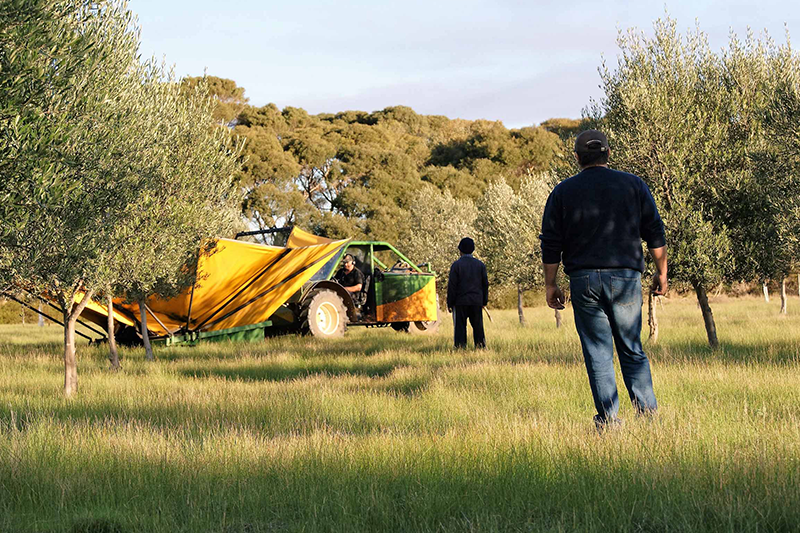
Caption: Kangaroo Island Olives is one of the producers benefitting from the novel table olives processing method. CREDIT: Kanagroo Island Olives
Meanwhile, the bitter flavours that are captured are removed from the brine, keeping the brine “fresh” and enabling it to be reused.
The freshness of the brine also enables a lower salt concentration to be used, producing a less salty table olive.
This new process is being piloted at a facility in Loxton, where the team has partnered with three local growers and has processed 17 tonnes of olives into table olives during 2024.
The new process also creates an additional income stream by capturing and repurposing the compounds removed from the olives during debittering, which are traditionally discarded.
These compounds can be used in the production of nutraceuticals, cosmetics and alcoholic mixers, adding value to what was previously a low-margin product.
“The ability to recondition the brine and turn waste into value-added products is a game-changer for the industry,” Prof Fielke explains.
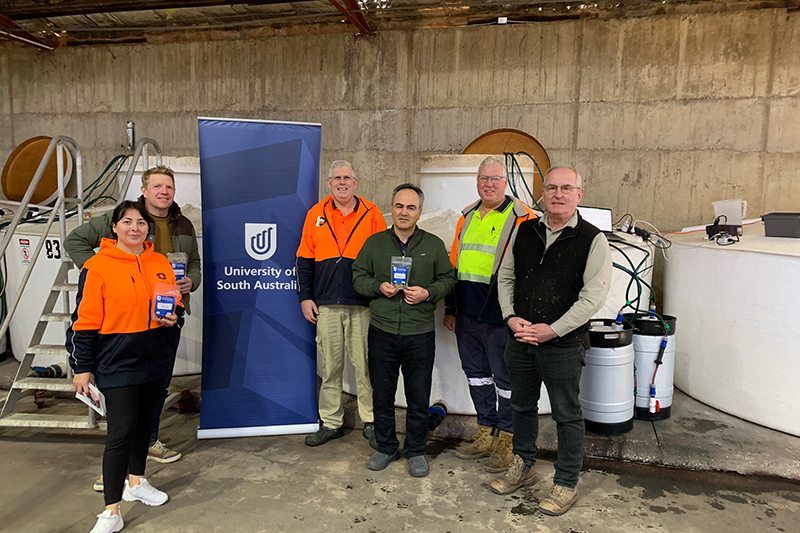
Caption: Prof John Fielk (middle-back) surrounded by UniSA colleagues and olive producers at the table olive processing facility in Loxton, South Australia.
CEO of the Australian Olive Association, Michael Southan, says Prof Fielke’s team is contributing to the broader agricultural innovation landscape, enhancing food security and economic opportunities.
“Table olive production is very labour intensive and inability for scale-up of conventional table olives has kept the production of table olives in Australia low,” Mr Southan explains.
“Additionally, the disposal of brine is a major issue for conventional table olive production.
“However, this project has successfully addressed scalability and environmental challenges, and we’re now set to see a boost in our olive industry through the production of high-quality, fruitier, healthier and sustainable table olives.”
UniSA’s approach not only promises to significantly grow the Australian olive industry but also presents new opportunities for collaboration with corporate investors, ensuring long-term and sustainable growth.
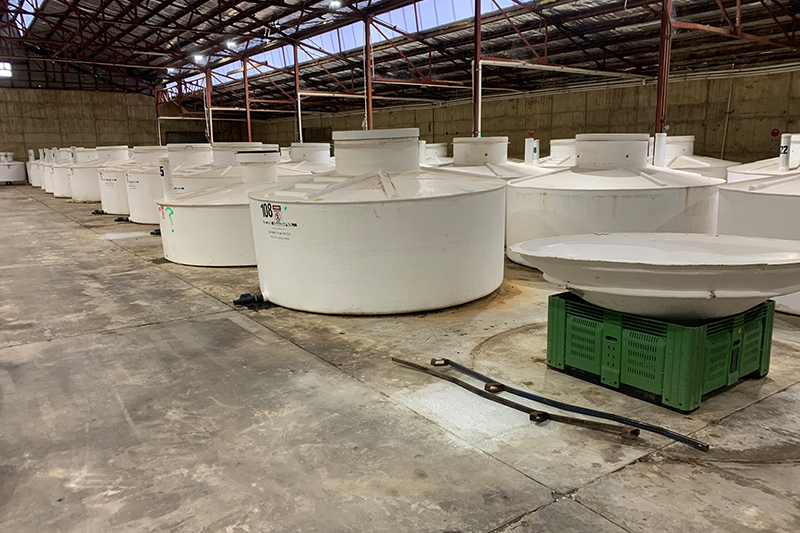
Caption: Prof Fielke’s team is automating table olive processing by using chemistry and smart engineering. The novel approach fast-tracks olive debittering at this Loxton facility and has processed 17 tonnes of supplied olives into fruity table olives in 2024.
President of Olives SA and General Manager of Kangaroo Island Olives, Michael Esposito, is currently working with John Fielke and the Loxton facility to produce table olives for his business.
“I’ve wasted a lot of good olives over the years through failed attempts at debittering via traditional fermentation methods, and, as a result, wasted so much time, water and other resources to little avail,” Esposito says.
“John and I first came together in 2017, after learning about emerging technologies in the USA, and I said to John ‘there has to be a better way to make table olives. … how can we improve processing, improve quality, reduce waste and speed up the whole process from tree to table?’
“Since then, we’ve collaborated to create this method in Loxton where John’s innovative process has really reduced the risk of our fruit spoiling and improved the overall quality.
“Kangaroo Island Olives hopes to significantly increase its production of table olives over the next few years and we’re looking forward to working with John to make that happen."
With a target to produce 100,000 tonnes of olives annually and the prospect of expanding to a billion-dollar industry, the project is poised to have far-reaching economic and environmental impacts, shaping the future of olive farming worldwide.
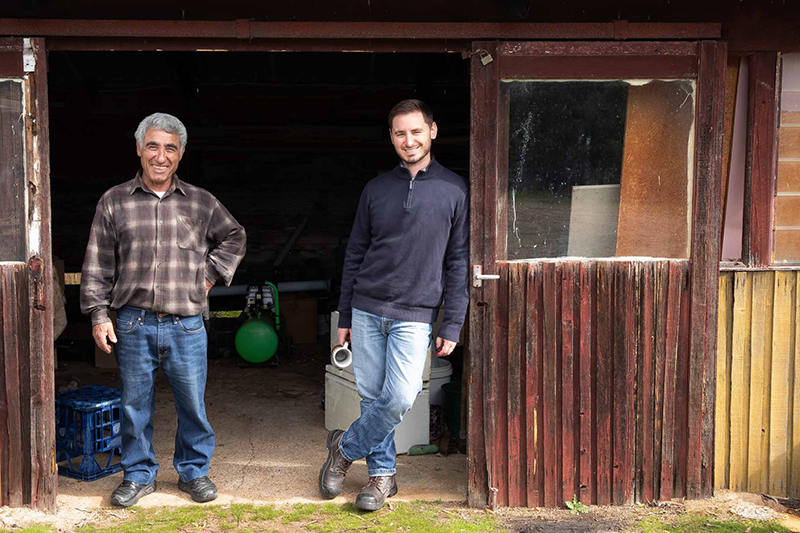
Caption: Kangaroo Island Olives' Dom Esposito (L) and Michael Esposito (R) have supplied olives to the table olive processing facility in Loxton. The business hopes to increase its production of table olives over the next few year. CREDIT: Kanagroo Island Olives
[1] International Olive Council: Table Olives – Provisional 2023/24 and Estimated 2024/25 Crop Years
[2] Hort Innovation: Olive Annual Investment Plan 2022/23




